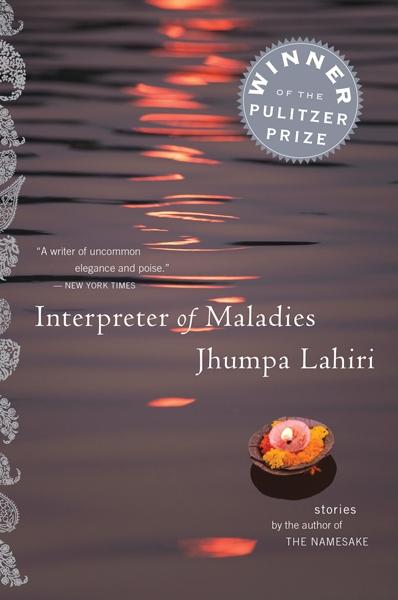Book Review: Interpreter of Maladies by Jhumpa Lahiri

November 10, 2022
Fans of The Namesake will love this collection of Lahiri’s enthralling short stories.
Upon first opening Jhumpa Lahiri’s Interpreter of Maladies, I had just finished The Namesake and consequently had extremely high expectations for Lahiri’s 1999 collection of short stories. The first story, A Temporary Matter, begins inauspiciously: “The notice informed them that it was a temporary matter: for five days their electricity would be cut off for one hour, beginning at eight PM” (1).
Never judge a book by its cover, the saying goes; the same can be said about judging a book by its first line. Soon, I was transported against my own will into the world of Shoba and Shukumar, a couple who had perhaps once been in love but whose feelings for each other had since faded. During the long evenings when there is no power, Shoba and Shukumar begin to engage in a truth-telling ritual that concludes with Shukumar admitting one of his deepest secrets, and by the end of the story, the two “[weep] together, for the things they now [know]” (32).
Lahiri continues in the same vein for the rest of the book, sucking the reader into each story for a mere two dozen or so pages until they are suddenly thrust out of the world they had come to know. A Real Durwan chronicles the plight of Boori Ma, a poor sweeper pitied by all but ultimately blamed for the whole building’s problems. In This Blessed House, Hindu couple Sanjeev and Twinkle, married by arrangement, are satisfied enough with their lives, but their petty disagreements regarding religion are enough to sour their relationship.
The final story, The Third and Final Continent, ends on a rather emblematic note. From the perspective of a nameless narrator who has just moved to the United States, Lahiri writes, “there are times I am bewildered by each mile I have traveled, each meal I have eaten, each person I have known…As ordinary as it all appears, there are times when it is beyond my imagination” (198). After finishing Interpreter of Maladies’ nine stories, the reader feels the same way—amazed at how many lives and experiences they have just peered into, allowed a moment’s glance at another’s world before being transported away. Lahiri’s profound prose makes Interpreter of Maladies a captivating read and one I cannot recommend more highly.


















